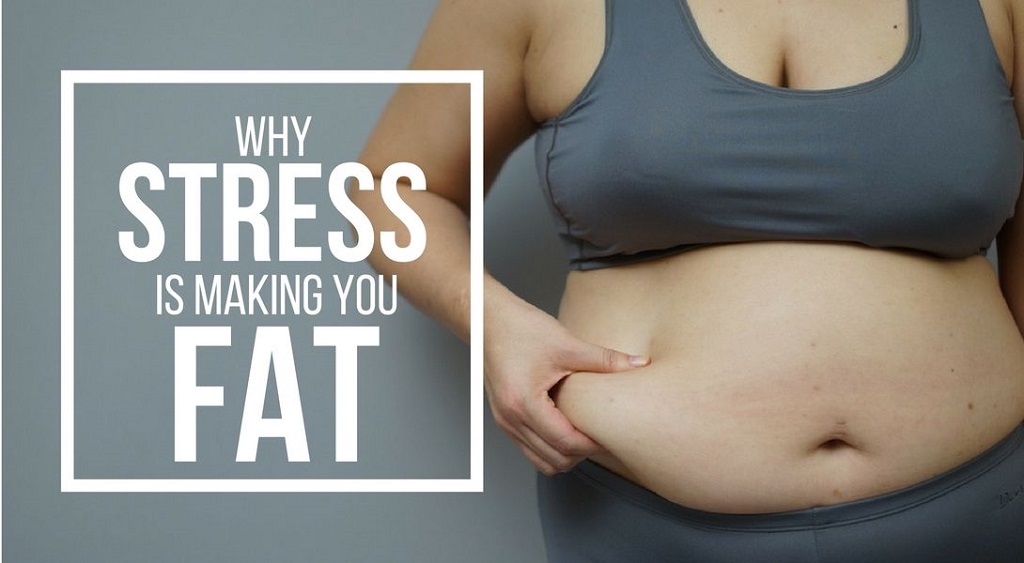When we are stressed, the levels of ghrelin, a hormone that stimulates appetite and participates in the metabolism of fats and sugars, are altered.
When summer arrives, many wonder if they will be able to fit into the previous summer’s clothes. Faced with uncertainty, the most immediate solution is to start a restrictive diet based on “no bread, no alcohol, no sweets, no fats, no nothing”. But remember that stress also makes you fat.
As soon as we make this decision, the mind immediately begins to foresee all the sacrifices and suffering we will have to face to fight the hunger and cravings that inevitably accompany a weight loss diet.
The worst thing is that sometimes you can’t lose weight even like that. Among the reasons that can cause this failure, there is certainly stress: in short, in addition to eating less, it would be good to relax more.
Not surprisingly, the stress and anguish generated by the very decision to follow a diet can cause us to accumulate fat and increase appetite because the action of a series of hormones enters. In short, the best solution to lose weight is to calm down, perform exercises that promote the mind-body connection (such as yoga, meditation, mindfulness, etc.), play sports (such as walking briskly every day), and consume small and varied portions.
Stress makes you fat
Ghrelin is a hormone that stimulates appetite and participates in the metabolism of fats and sugars. In addition, it reaches the blood of the brain and regulates the functions associated with the management of nervousness.
When we are stressed, ghrelin levels are altered, which in turn affects behavior, mood, and metabolism. In other words, stress raises levels of this hormone, which consequently increases appetite.
Recent studies state that this hormone also plays a decisive role in stress, anxiety, and depression. It seems that ghrelin can protect us from the psychological burden produced by constant stress, but this causes overweight.
Think that when we decide to eat less, the appetite hormone could come into play even soon after we finish eating, which is even more frustrating and makes us even more stressed rather than satiated. Furthermore, ghrelin can also stimulate the production of cortisol, another hormone that comes into play when we are stressed.
The ying and yang of cortisol
Cortisol performs multiple tasks within the body. For example, it performs various functions for metabolism, such as maintaining normal blood glucose levels. In addition, it is also classified as a ” stress hormone “.
Under normal situations, cortisol is highest in the early morning and after lunch. Although this hormone helps to generate glucose from fat, it does not produce the same effects when it rises erratically. When cortisol levels rise more often than they should, the opposite effect can occur: it increases the production of fat, which usually accumulates in the belly area.
When I’m stressed, I don’t know if I’m hungrier
Leptin is the hormone that induces satiety after eating. Not feeling full after eating can be a consequence of leptin not reaching normal levels. Many overweight and obese people actually develop so-called leptin resistance, making them feel less full; therefore, they overeat.
Recent studies indicate that leptin is also affected by stress, so the feeling of satiety when eating is reduced.
Stress Makes You Fat: Live to Eat or Eat to Live?
Many other factors explain why stress makes you fat: poor sleep, irregular meal times, low fiber intake (abundant in vegetables and legumes), but also taking antidepressants and anxiolytics.
In short, sometimes food does not satisfy the real metabolic needs, but rather tries to fill the gaps and empty spaces that generate a stressful lifestyle. Maybe to get into summer clothes you just need to take life more calmly and love yourself more. Only in this way can food become a secondary factor.
You may also like to read, The keys to choosing the perfect wedding menu














